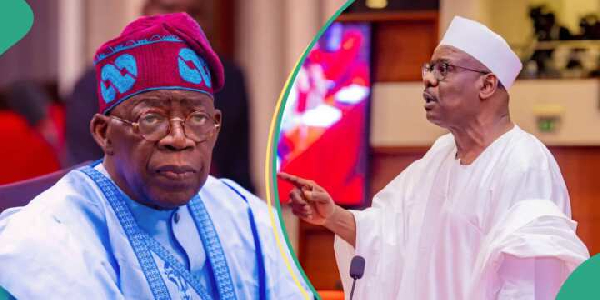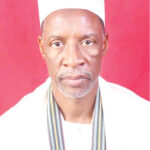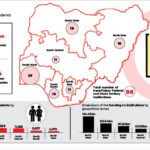Chief Whip of the Senate, Mohammed Ali Ndume, says President Bola Ahmed Tinubu has been fenced off and caged by certain forces.
Ndume (Borno South), told newsmen, on Wednesday, at the National Assembly Complex in Abuja, that nothing appreciable was being done by the President to deescalate the security challenge bedeviling the country.
The lawmaker said Nigerians were angry over the “failure” of the Tinubu-led government to tackle the challenges of poverty, insecurity, hunger and others that have brought the country to its knees.
The Senate Chief Whip said, “Mr. President is not in the picture of what is happening outside the Villa. He has been fenced off and caged. So many of us won’t go through the backdoor to engage him.
Now they have stopped him from talking and he doesn’t have public affairs managers, except that his spokesman, Ajuri Ngelale, who writes press statements. Nigerians are getting very angry.
“The government is not doing anything about the food scarcity and it needs to do something urgently. We don’t have food reserve. There is unavailability of food. Food crisis is the worst crisis that any nation can encounter . If we add that to security crisis, it will be severe.
“The President should wake up, it seems he isn’t in the picture of what is happening because he has been caged off. He has been fenced off by plutocrats. He should open his doors and meet those who will tell him the truth.
“Unfortunately, the people who will tell him the truth won’t struggle to meet him. I am very worried not only for the President himself but myself.”
On the issue of farmer-herder crisis, Ndume said stakeholders have not been sincere in addressing the menace, adding that contributions have always been driven by ethnic sentiments.
In an interview with BBC Hausa earlier on Wednesday, Ndume had said the federal government’s inability to address these issues is a major challenge, adding that some ministers are unable to meet with President Bola Tinubu to discuss the matter.
He had said: “The major problem with this government is that its doors are closed, to the extent that even some ministers cannot see the President, not to mention members of the National Assembly, who do not have the opportunity to meet with him and discuss the issues affecting their constituencies.”

 Join Daily Trust WhatsApp Community For Quick Access To News and Happenings Around You.
Join Daily Trust WhatsApp Community For Quick Access To News and Happenings Around You.


